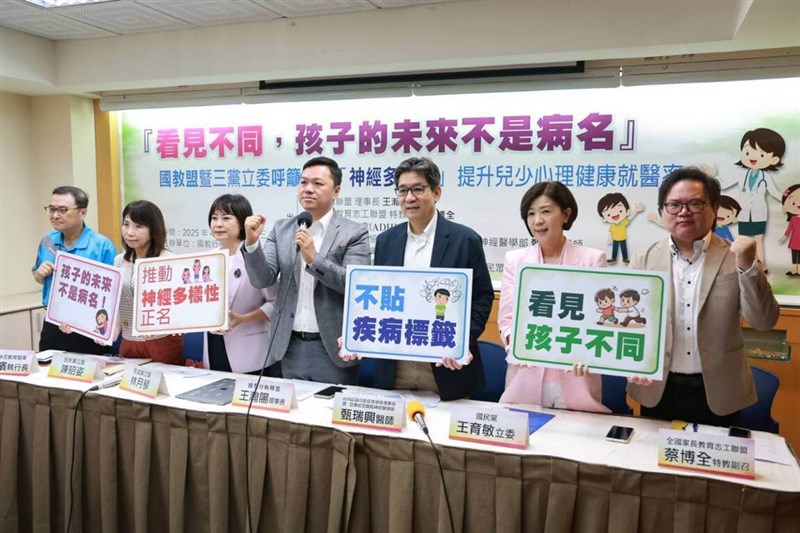
Taipei, April 30 (CNA) A local advocacy group on Wednesday urged that Taiwan change the way it describes and talks about childhood mental illnesses by categorizing them as "neurodiversity" to reduce stigma and improve access to treatment.
At a press conference, the Action Alliance on Basic Education said many parents lack accurate knowledge of conditions such as attention deficit hyperactivity disorder (ADHD) and often fear that their children will be labeled, leading to delays in seeking medical help.
Alliance Chairman Wang Han-yang (王瀚陽) cited government statistics showing that nearly 20 percent of over 6,000 reported child abuse cases last year involved children with special needs, including hyperactivity and developmental delays.
These children are frequently misunderstood and subjected to inappropriate discipline, creating a cycle of harm, he warned.
The group proposed that, similar to how "senile dementia" was renamed "Alzheimer's disease," the government should establish an interagency task force to replace stigmatizing terminology in medical, educational, and social welfare systems with the more neutral and globally recognized term "neurodiversity."
According to Harvard Health Publishing, neurodiversity "describes the idea that people experience and interact with the world around them in many different ways; there is no one 'right' way of thinking, learning, and behaving, and differences are not viewed as deficits."
- Society
Rainy weather in parts of Taiwan on last day of long weekend: CWA
06/01/2025 01:10 PM - Society
Taiwan headline news
06/01/2025 12:28 PM - Society
2 Filipino students perish in scooter crash in Kaohsiung
06/01/2025 10:32 AM - Sports
Taiwan wins 1 silver, 4 bronze at 2025 Asian Athletics Championships
05/31/2025 09:35 PM - Society
World Masters Games closing lyric muting draws public backlash
05/31/2025 09:25 PM